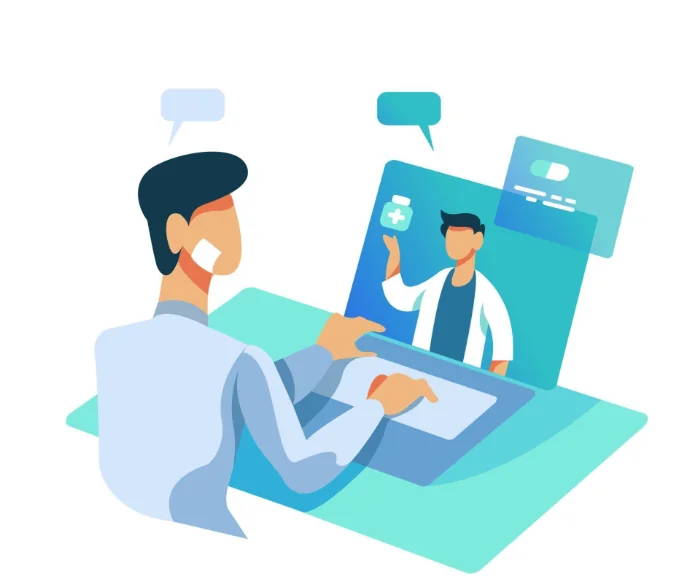Revolutionizing Healthcare with Innovative Apps!
Today, advancements in technology have enabled us to revolutionize healthcare with innovative apps. From tracking health data to providing doctor consultations, apps for healthcare have come a long way in revolutionizing the healthcare industry. In this blog article, we will discuss the benefits of healthcare apps, the common features of these apps, the regulations and compliance for developing healthcare apps, and the development process. So, let’s get started.
Table of content
Table of Contents
Today, advancements in technology have enabled us to revolutionize healthcare with innovative apps. From tracking health data to providing doctor consultations, apps for healthcare have come a long way in revolutionizing the healthcare industry. In this blog article, we will discuss the benefits of healthcare apps, the common features of these apps, the regulations and compliance for developing healthcare apps, and the development process. So, let’s get started.

Introduction to healthcare applications
Healthcare apps, also known as mobile healthcare apps, are software applications that are designed to provide healthcare services to users. These apps can be used for medical advice, to track health data, to book doctor appointments, and more.
The use of mobile healthcare apps is on the rise, as more and more people are turning to their smartphones for healthcare advice and services. According to a study, the number of people using mobile healthcare apps is expected to reach 1.7 billion by the year 2021.
Benefits of healthcare apps
Healthcare apps have revolutionized the healthcare industry by providing numerous benefits to both healthcare professionals and patients. Here are some of the key benefits of using healthcare applications:
- Cost-effective: healthcare applications are generally much cheaper than traditional healthcare services. This makes them a great option for those who are on a budget or don’t have access to traditional healthcare services.
- Convenience: medical apps provide users with the convenience of being able to access healthcare services from anywhere, anytime. This makes them a great option for those who are busy or don’t have access to traditional healthcare services.
- Access to medical advice: aplication provide users with access to medical advice from qualified healthcare professionals. This makes them a great option for those who need medical advice but don’t have access to traditional healthcare services.
- Data tracking: medical apps also provide users with the ability to track and monitor their health data. This makes them a great option for those who want to keep track of their health and make informed decisions about their health.
- Better patient care: also provide healthcare professionals with the ability to provide better patient care. This makes them a great option for healthcare professionals who want to provide the best possible care for their patients.
Common features of Medical Apps
Healthcare aplications come with a variety of features that are designed to provide users with access to healthcare services. Here are some of the most common features of healthcare apps:
- Health tracking: The ability to track and monitor health data such as heart rate, blood pressure, weight, and activity levels.
- Health information: Access to health information such as nutrition information, exercise tips, and health news.
- Doctor consultations: The ability to book doctor consultations and access medical advice from qualified healthcare professionals.
- Prescription refills: The ability to refill prescriptions online and access medication reminders.
- Appointment reminders: The ability to set reminders for doctor appointments and other healthcare-related tasks.
- Medical records: The ability to access and manage medical records such as lab results, test results, and health histories.
- Emergency services: The ability to access emergency medical services such as 911 and poison control.
Regulations and compliance for Healthcare aplications
Developing app requires developers to adhere to a set of regulations and compliance standards. This is to ensure that the app is secure, reliable, and compliant with applicable laws and regulations. Here are some of the key regulations and compliance standards for healthcare apps:
- HIPAA: The Health Insurance Portability and Accountability Act (HIPAA) is a federal law that sets standards for protecting the privacy and security of medical information. Developers must adhere to HIPAA standards when developing app.
- FDA: The Food and Drug Administration (FDA) sets standards for safety and effectiveness of medical products, such as medical apps. Developers must adhere to FDA standards when developing healthcare apps.
- Data Protection: Developers must also adhere to data protection standards such as encryption and authentication when developing healthcare apps.
- Patient Safety: Developers must also ensure that the healthcare app is secure and reliable, and does not pose any risks to patients.
Healthcare app development process
Developing a healthcare app requires a complex and detailed process. Here are the key steps in the healthcare app development process:
- Research: Before starting the development process, it is important to do research to understand the needs of the users and the regulations and compliance standards that must be adhered to.
- Design: The next step is to design the user interface and user experience of the app. This includes creating wireframes and prototypes to ensure the app is user-friendly and intuitive.
- Development: Once the design is complete, the next step is to develop the app. This involves writing code and using specific technologies and tools to create the app.
- Testing: Once the app is developed, the next step is to test the app to ensure it is secure, reliable, and compliant with applicable laws and regulations.
- Deployment: The last step is to deploy the app to the app store. This involves submitting the app to the app store and ensuring it meets the app store guidelines.
Conclusion
In conclusion, medical apps have revolutionized the healthcare industry by providing numerous benefits to both healthcare professionals and patients. From tracking health data to providing doctor consultations, healthcare apps provide users with access to a variety of healthcare services. Developing healthcare apps requires developers to adhere to a set of regulations and compliance standards, and a complex and detailed development process. With the help of medical apps, we can revolutionize healthcare and provide users with access to better healthcare services.


